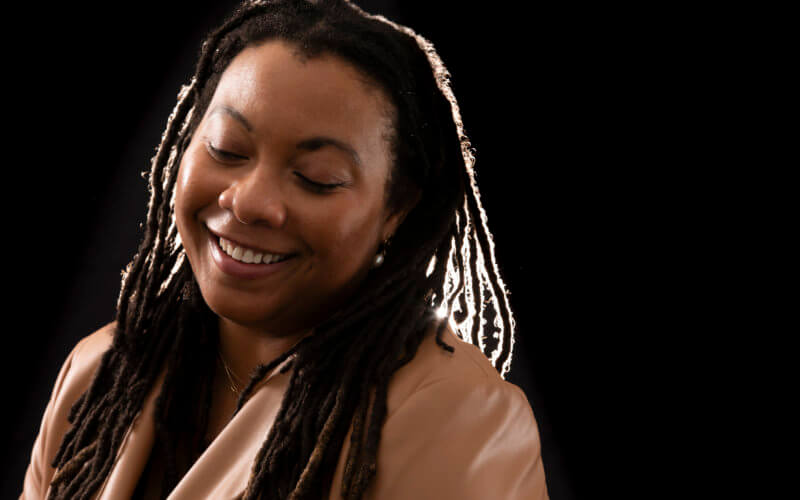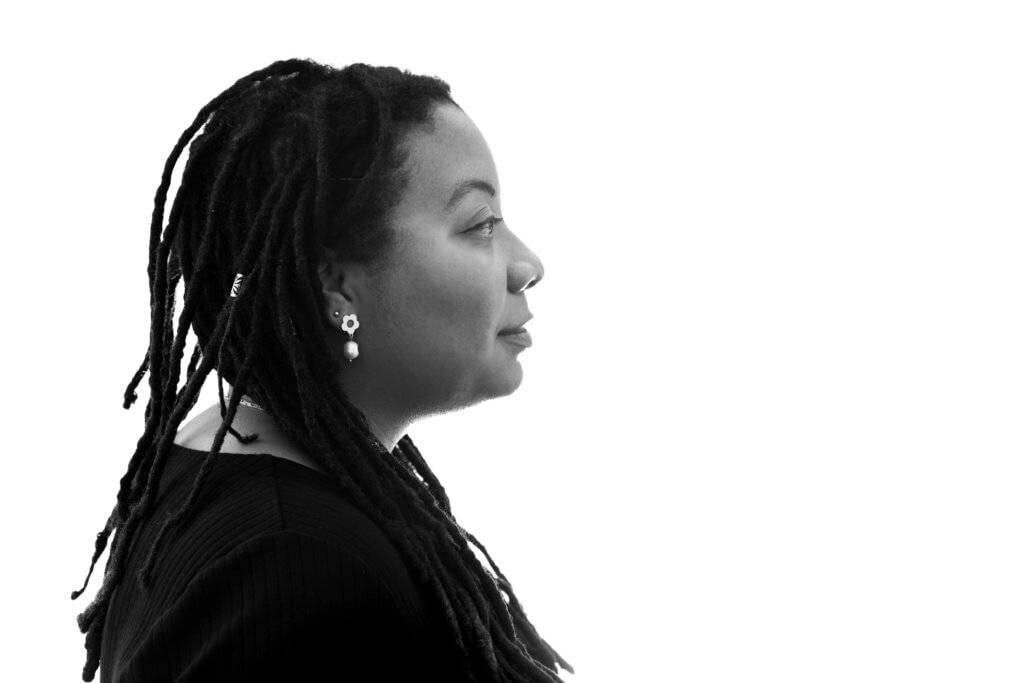
When many Black women decided to stop chemically relaxing their hair in the early 2000s, it signified the start of the natural hair movement. Kristin Denise Rowe was among those who were inspired to start styling their natural hair.
“It was something that I experienced firsthand, and I started asking questions and observing it along the way. When I got to college, I realized that this research needed to be done,” said Rowe, an assistant professor of American studies at Cal State Fullerton.
Rowe’s research looks at cultural representations of Black women, studying beauty, hair and body politics. In her recent work, she aims to understand beauty standards and depictions of Black natural hair within pop culture.
Her work has been quoted in such publications as The Washington Post and Refinery 29 and been featured in several peer-reviewed journals.
Published in the Journal of American Culture, Women and Language, Open Cultural Studies, and Journal of Contemporary Ethnography, Rowe’s article titles include “‘Unmanageable’: Exploring Black Girlhood, Storytelling and Ideas of Beauty” and “Rooted: On Black Women, Beauty, Hair and Embodiment.”
In 2023, her research was featured in “The Black Beauty Effect,” a docuseries that is streaming on Netflix.
The three-part series examines Black people’s contributions to beauty and culture throughout history, with episodes focusing on makeup, skincare and hair. The production company, FaceForward Productions, first approached Rowe to be part of the project about two years ago.
“They were really interested in looking at the history of Black beauty culture and they brought together different experts to tell that story,” explained Rowe, a Black beauty scholar. “It was such an important project, and I was really excited to add my voice to this narrative.”
Filming at a studio in West Hollywood, California, Rowe said she had the opportunity to connect with other beauty scholars, an impressive lineup of experts who shared their own unique experiences throughout the series.
“As a kid, I loved to read books and magazines, listen to music, and watch movies. Pop culture is such a huge part of my life, and I feel honored that I can bring that passion together with my personal experience and do things like this docuseries for a living.”
After walking the red carpet in Hollywood, Rowe saw the series for the first time at L.A. Live, and she felt proud of the final product.
“Even if I had nothing to do with it, I would recommend this show to folks who are interested in understanding the history of Black beauty and its influence,” she added.

“The responses that I’ve gotten about the series have been so positive. Outside of family and friends, I have people reaching out to let me know that they learned something from the show, and it’s been incredible to see that impact,” said Rowe.
The series discusses Black makeup artists’ influence from the 1990s until now, while also looking at how Black hair stylists have influenced beauty standards through their work with celebrities and influencers in the entertainment industry, and how skin care has been developed to treat different skin types.
Rowe said one of the biggest takeaways from the series is how it tells the history of the beauty industry from the perspective of Black beauty experts.
Following her Netflix debut, Rowe is writing a new book titled, “‘It’s the Feelings I Wear’: Black Women, Natural Hair and New Media (Re)negotiations of Beauty,” which will examine how Black women on social media are “going natural” with their hair and the natural hair movement’s influence on beauty standards and hair politics.
Teaching such courses as The Body in American Culture and Race and Popular Culture, Rowe said she often brings her research back to her students, teaching them the importance of sharing scholarship in public forums.
“There’s so much value in learning about and understanding different histories,” said Rowe. “If we look at the archival history of beauty culture, you will see Black people’s expertise and contributions, and it’s important to shed light on that narrative.”